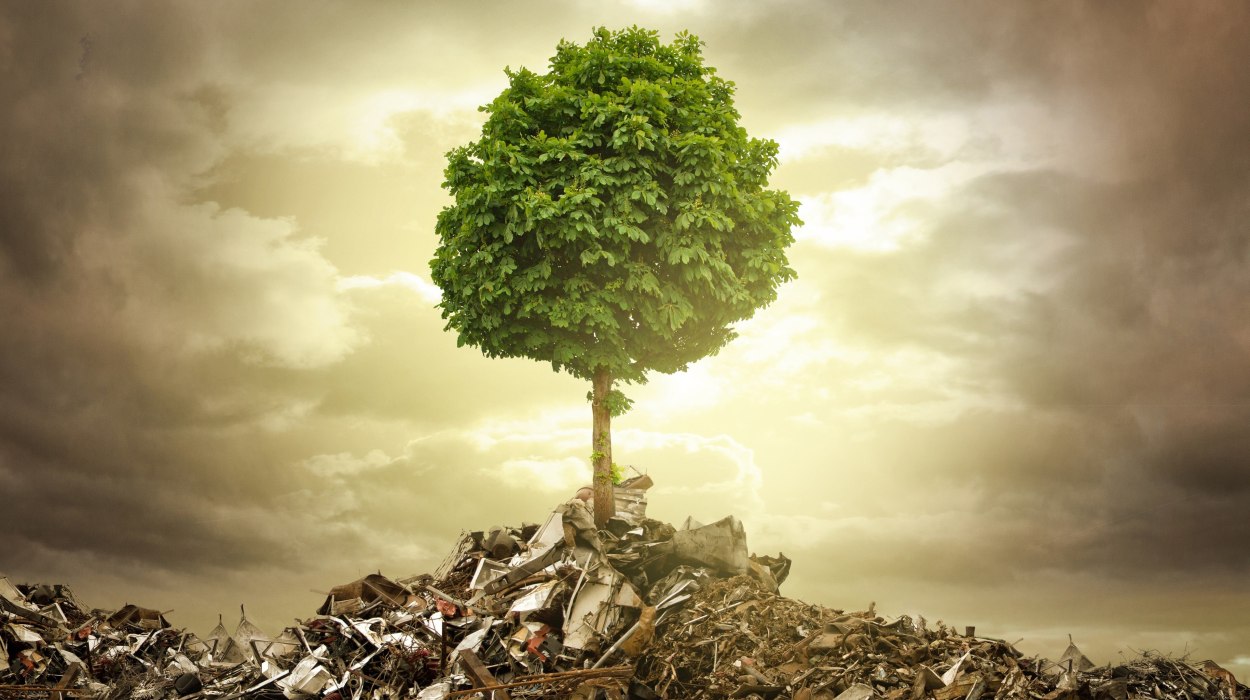Ecological Project "Save The World From Garbage" Presented in Sukhum

SUKHUM / AQW'A ― On Thursday, March 9th, the public organization "Abkhaz Desk" presented its new ecological project, "Save the World from Garbage," aimed at reducing plastic pollution in Abkhazia.
As part of the project, machines for collecting plastic bottles will be installed in the country that will automatically dispense food for stray animals in exchange for plastic bottles. According to the organizers, these machines will not completely solve the problems of plastic pollution and stray animals in the republic, but their installation will show hundreds and thousands of people how to act: to recycle plastic and take care of our furry friends.
Before the project presentation, a discussion was held on the topic of "Plastic, Ecology, Awareness," with the participation of ecologists, public figures, animal rights activists, journalists, and representatives of the company "Eco Apsny." "Plastic pollution is a global problem that, unfortunately, has not bypassed Abkhazia. The situation is exacerbated by the fact that there is no recycling of secondary raw materials in the republic, and there are no accurate figures on the degree of pollution. Our organization, which implements social, cultural, and ecological projects in Abkhazia, considers it important to draw the public's attention to this problem," said the project manager and director of the "Abkhaz Desk" center, Betul Marshan.
According to Marshan, all plastic collected during the project will be sent for recycling. The project partner, the company "Eco Apsny", which collects secondary raw materials in Abkhazia and exports them to recycling plants in Russia, will assist with this process. All speakers agreed that plastic disposal in Abkhazia is a severe problem.
+ The environmental project "Let's Save the World from Garbage" will be presented in Sukhum
+ Ecologists Warn of Ongoing Oil Pollution in the Seas of Tuapse and Sochi
Orthodontist Nar Tania said that this material causes cancer, especially leukemia, and can lead to genome mutations and disruptions in the circulatory system. Additionally, there is a significant increase in allergic reactions, particularly in children. The doctor believes that one of the reasons for this is that almost all children's toys are made of cheap plastic. In his opinion, legislative prohibition is necessary; otherwise, an environmental disaster may occur.
The discussion participants agreed that plastic recycling begins with separate waste collection. Roman Leyba, a member of the public environmental organization "Apsabara," stated that this process is like a closed loop. Building a separate waste processing plant is not economically profitable since the amount of waste in the country is not yet that significant. Even when waste is separately collected, there is nowhere to process it. "There are several bins for separate waste collection in Pitsunda, but when the communal workers load the waste into the truck, they mix it up again," he said. To break this closed loop, a demand for a solution to the problem is necessary, which currently lacks in society. Providing children with environmental knowledge from school can create this demand.
Timur Strochan, an employee of the ANA Institute of Ecology, is confident that Abkhazian society does not fully understand the importance of solving the plastic disposal problem. For example, in rural areas, plastic is often burned, which results in harmful substances entering groundwater, and carcinogens can be found in grown fruits and vegetables. The state needs to create necessary infrastructure for waste disposal, and burning of waste should be legislatively prohibited.
Karina Kolpakchyan from the Animal Protection Fund believes that the republic's society is ready for separate waste collection. She thinks that a certain habit can be formed for this. It is important for ecology to become an interdisciplinary subject in schools to achieve this. "Nothing prevents us from starting this work," she emphasized.
Alkhas Dzhgarkava, one of the leaders of "Eco Apsny," noted that their company has been buying plastic waste from the population since December 2021, and positive dynamics have already emerged. However, there are problems with logistics and low profitability since waste has to be transported to central regions of the Russian Federation. Additionally, the presence of medical waste mixed with plastic reduces the cost of the collected waste.
As a result of the discussion, the following conclusions were drawn: plastic disposal is a pressing issue for Abkhazia; society needs to form a habit of separate waste collection; ecological knowledge should be taught to children from kindergarten; and the state should actively assist in creating infrastructure for waste collection, transportation, and processing.
The project "Save the World from Garbage" is being implemented within the framework of the project "Increasing the resilience of the population to climate risks" implemented in Abkhazia by the UN Development Program and the Swedish International Development Agency.